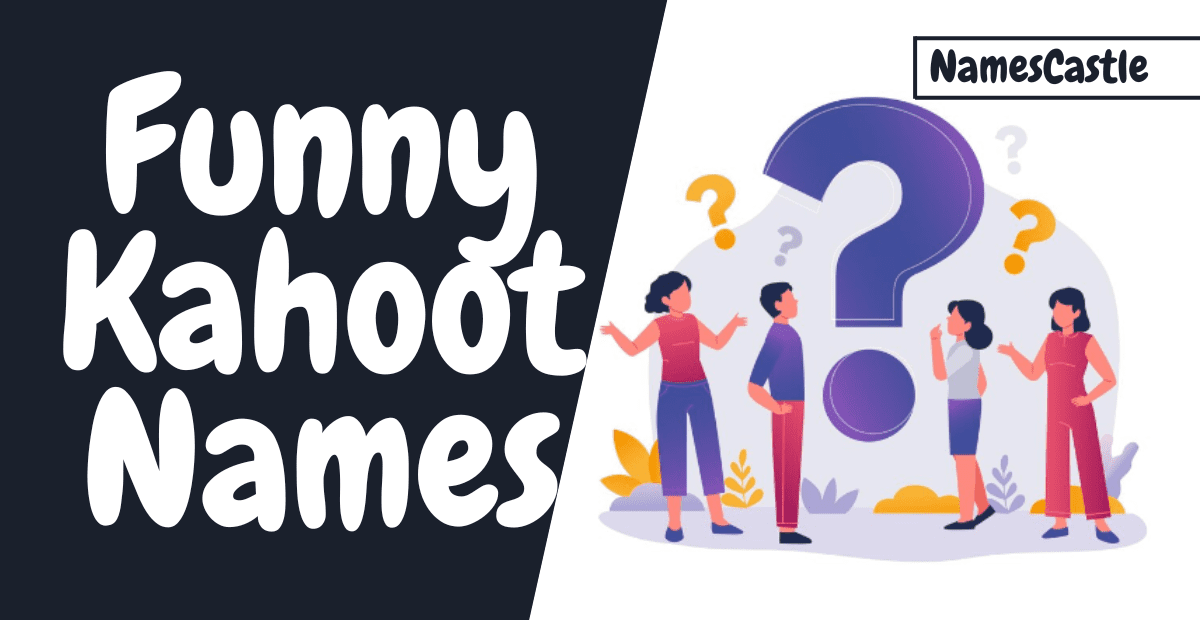
Exploring Kahoot Names: The Fun and Controversial Side of User-Generated Handles
Kahoot Names, the interactive learning platform, is beloved by students and educators alike for its fun and engaging quizzes. However, as with any online game, there is a more playful (and sometimes controversial) side to the platform: the names that users choose to represent themselves. Among these, a specific category of names has garnered attention—”dirty” Kahoot names. While these names often raise eyebrows, they also reveal much about online behavior and the importance of setting boundaries in digital spaces. This article explores this intriguing aspect of Kahoot, providing an in-depth look at what “dirty” names are, why they appear, and the impact they can have.
What Are Dirty Kahoot Names
“Dirty” Kahoot names refer to usernames or nicknames that are inappropriate, crude, or offensive. These names may include explicit references to sex, bodily functions, or other controversial topics that are generally not suitable for educational environments. While some users may choose these names for shock value or humor, they can sometimes cross the line into disrespect or disrupt the learning experience.
The Rise of Playful Nicknames in Kahoot
Kahoot’s gamified learning environment encourages users to create unique identities, often using funny or creative names. However, as the platform grew in popularity, a trend emerged where some users, particularly younger players, adopted “dirty” names to add an element of rebellion or humor to their participation. This trend is not isolated to Kahoot; it’s a reflection of broader online behavior where anonymity or the lack of strict oversight encourages more playful and sometimes inappropriate expressions.
Why Do Users Choose Dirty Names
There are several reasons why players might opt for dirty names in a game designed for education:
- Humor: Many users may choose inappropriate names because they find them funny or rebellious. Humor can be subjective, and what one person finds funny, another may see as inappropriate.
- Anonymity: Online platforms like Kahoot allow users to operate behind the veil of anonymity. This can embolden users to adopt edgy names they wouldn’t use in face-to-face interactions.
- Peer Influence: In multiplayer settings, especially among younger users, there can be peer pressure to fit in. If the group is using edgy or humorous names, others may follow suit to avoid standing out.
- Attention-Seeking: For some users, using a dirty name might be a way to attract attention or provoke reactions from other players, especially in a competitive setting.
The Impact of Dirty Names on the Learning Environment
Although playful or rebellious, dirty names can have several negative consequences, particularly in educational settings:
- Distraction: In a classroom or group setting, the use of inappropriate names can distract other players and disrupt the flow of the game. This can hinder the learning experience for everyone involved.
- Offense: Some students, teachers, or participants may find certain names offensive, which could lead to uncomfortable situations. This can harm the inclusive nature of the learning environment and make some individuals feel excluded or disrespected.
- Negative Influence on Young Users: Younger users, who are often the primary audience for Kahoot, may be more impressionable. When they see inappropriate names being used, it can normalize this behavior and encourage them to adopt similar approaches.
How Kahoot Addresses Inappropriate Names
Given the impact that inappropriate names can have, Kahoot has implemented a few measures to help maintain a respectful environment. These measures include:
- Moderation: Kahoot’s team actively monitors and moderates content to identify and remove offensive names.
- Nickname Filters: The platform includes automatic filters that detect and block inappropriate words in usernames, providing a level of protection against explicit names.
- Encouragement of Respect: Educators are encouraged to foster a culture of respect within their classrooms and remind students of the importance of using appropriate names.
How to Keep Your Kahoot Experience Fun and Respectful
While it’s natural for users to want to have fun, it’s crucial to strike a balance between humor and respect. Here are some tips for keeping your Kahoot experience fun without resorting to offensive names:
- Be Creative: There are countless ways to create fun and witty usernames that don’t cross the line into inappropriate territory. Think of clever wordplay, puns, or inside jokes that everyone can enjoy.
- Stay Classy: Consider the context in which you’re playing. If you’re in a classroom or educational setting, aim for names that contribute to a positive environment.
- Respect Others: Always consider how your name might affect others. What seems funny to you might be offensive to someone else.
- Encourage Positive Behavior: Educators can set the tone by modeling positive behavior and encouraging students to choose names that reflect the values of the classroom.
Conclusion
Dirty Kahoot names may provide a brief moment of amusement for some, but they also raise important questions about digital behavior and the impact of online platforms in educational settings. While the use of inappropriate names is not unique to Kahoot, it serves as an important reminder of the need to balance fun with respect. By choosing creative, inclusive usernames, players can contribute to a positive learning environment for everyone involved.
As we continue to navigate the digital age, it is essential to foster spaces where all participants feel comfortable and respected, making platforms like Kahoot more enjoyable and productive for everyone.
FAQs
1. What should I do if I encounter a dirty name in Kahoot?
If you come across an inappropriate name during a Kahoot game, report it to the game host or teacher. They can take appropriate action, including removing the player from the game or reporting the incident to Kahoot.
2. Are there any consequences for using inappropriate names in Kahoot?
Yes, using offensive names in Kahoot can lead to the removal of the player from the game, and in some cases, the account may be banned, especially if the behavior is repeated.
3. Can I change my Kahoot username during the game?
Yes, Kahoot allows players to change their username during a game, but it’s important to choose a respectful and appropriate name to avoid offending others.
4. How does Kahoot ensure usernames are appropriate?
Kahoot uses automated filters to detect and block inappropriate language in usernames. Additionally, moderators review reports of inappropriate content.
5. Can teachers set rules for Kahoot usernames?
Yes, teachers can set expectations for username behavior and encourage students to choose names that are respectful and appropriate for the classroom environment.


